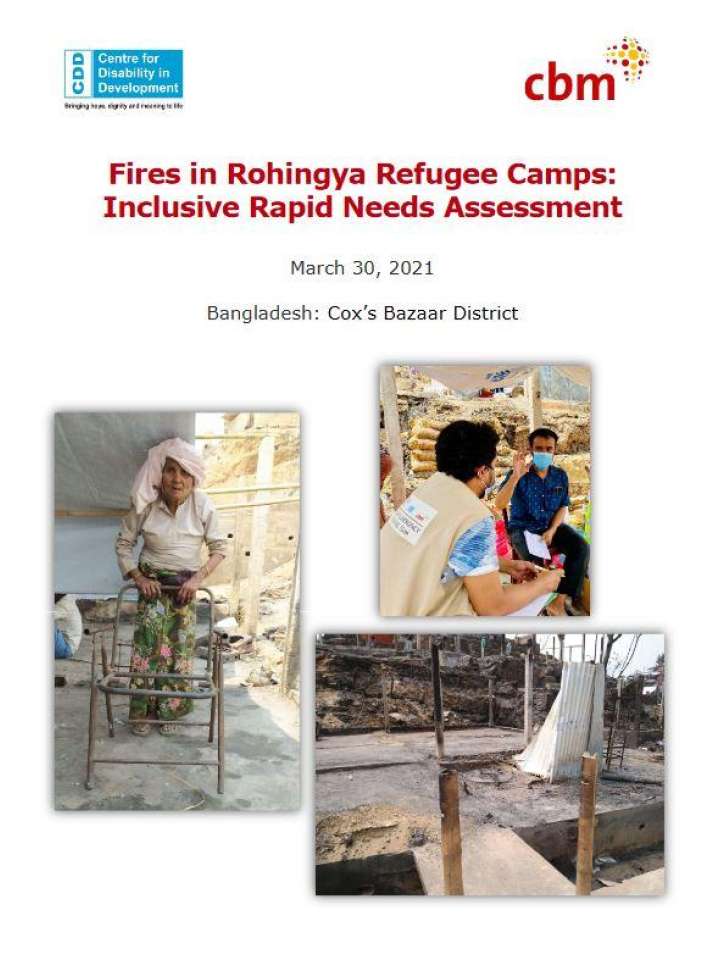Fires in Rohingya refugee camps: Inclusive rapid needs assessment
This rapid needs assessment indicates that while gains have been made to make preparedness methods more inclusive, such as the incorporation of inclusion into the training of community volunteers on emergency preparedness, persons with disabilities are still at risk of being left behind in warning and evacuation measures. Inclusive preparedness systems are essential for saving lives in times of crisis. Initial findings from the assessment highlight the needs for a multi-sectoral inclusive response, targeting those who are at the highest risk.
An opportunity to build back more inclusive exists, and it is imperative that humanitarian actors capitalize on this; persons with disabilities should be consulted in the process and reconstruction is done in an accessible manner. The need for rehabilitation is essential for persons with new injuries including burns as well as to replace assistive devices which were lost in the fire is essential. Health services should follow the twin-track approach – providing services that are accessible for all people and also meet the specific requirements of persons with disabilities. Access to rehabilitation as well as Mental Health and Psychosocial Support (MHPSS) services is essential for the health and well-being of persons with disabilities, and for allowing them to access humanitarian assistance.
Explore further
